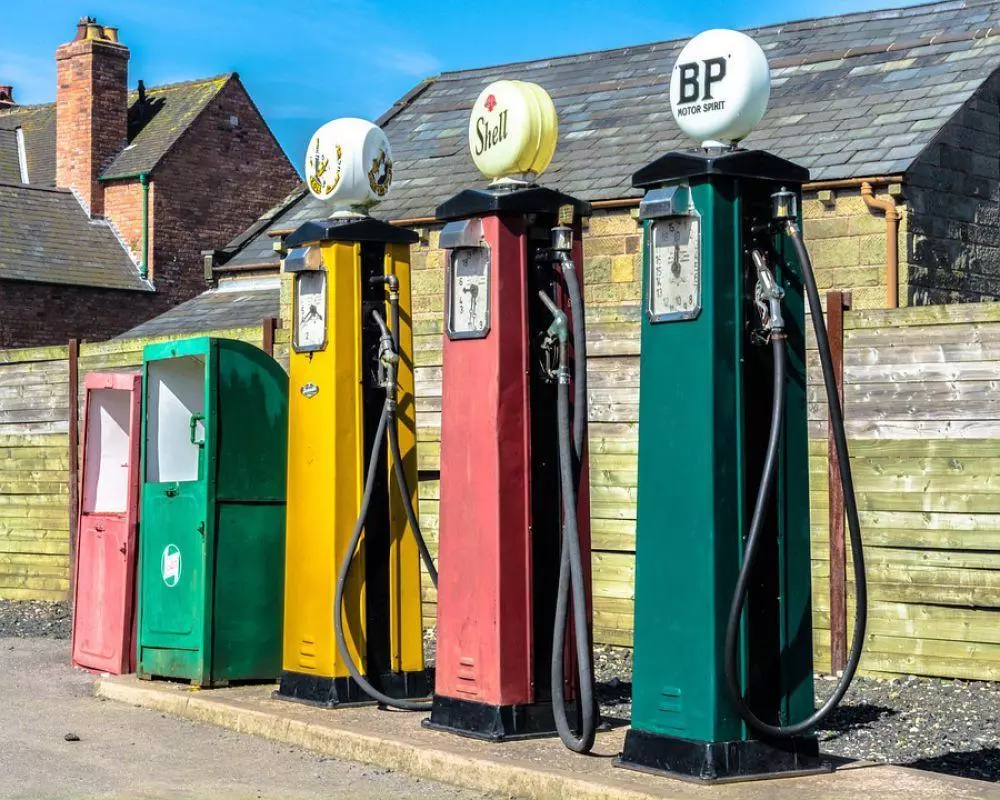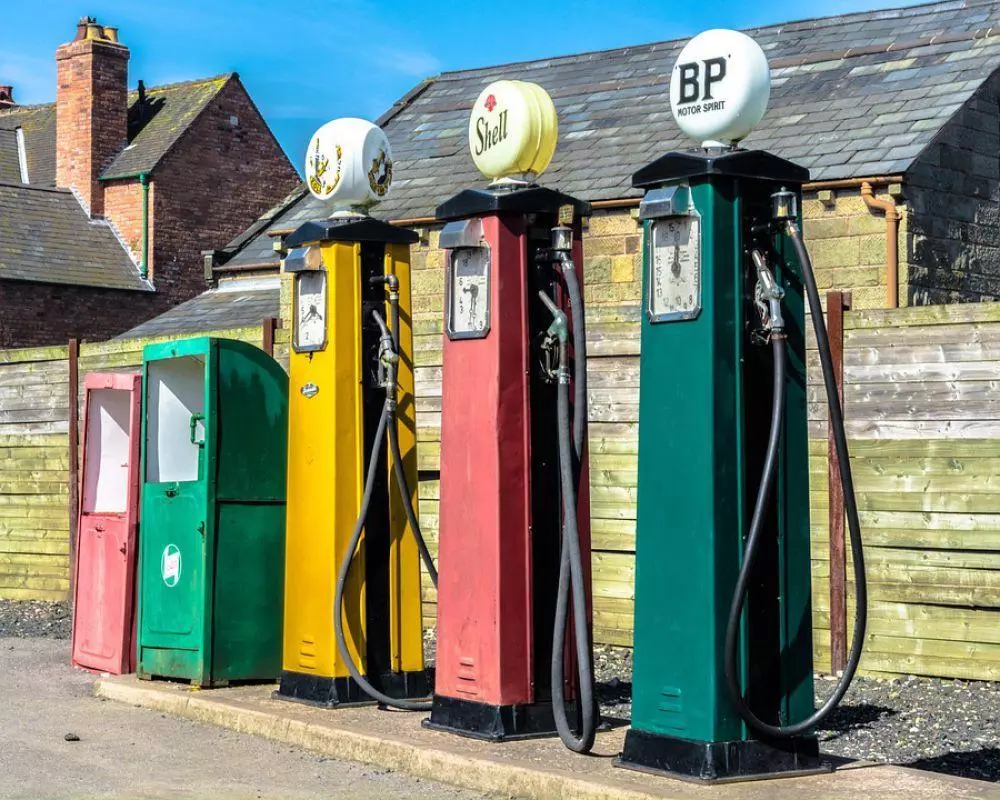Trading in the oil market offers high liquidity and excellent opportunities to profit in nearly all market conditions due to its unique standing within the world’s political and economic systems.
Characteristics of the Oil Market

The oil movements are captured via demand and supply, affected by world-wide output and the global economic prosperity. On the one hand, shrinking demand and over-supply encourage traders to sell crude oil markets to lower ground. On the other hand, declining flat production and rising demand encourage traders to bid crude oil to higher ground.
I have spent a decade and a half, thoroughly studying markets, and specially the oil market. I am sometimes asked, why the oil market? Because it is always, to this day, one of the most essential commodity on earth. Without oil, civilisation as we know will come crashing to a halt. I am very much in favour of all types of non-polluting, harmless alternative sources of energy. Yet, for the last 160 years, oil is the fuel for this engine called international commerce.
Here is a quick review of what petroleum is. It is a naturally occurring liquid and it is formed when dead organisms (such as zooplankton and algae) become buried under rock, transformed by both extreme heat and pressure. More than three quarters (by volume) of the hydrocarbons found naturally in petroleum is converted into various types of fuels. The remaining part (16%) is transformed into different chemical components, used in asphalt, pesticides, solvents, fertilisers, pharmaceuticals, and plastics.
Because it is easy to transport, is abundant, and has a high energy density, petroleum has been the most important source of energy, worldwide, for the last 65 years. In 2015, the IEA was forecasting that the world demand for oil would be 93 million barrels per day, or 34 billion barrels per year. If the daily consumption remains the same or increases only slightly, earth’s oil supply can last 120 years, at the most. This supply could also be depleted 100 years from now.
This is a great source of concern, for many industrialised countries, because even though alternative sources of energy are gaining ground and are used more and more each year, the depletion of the oil reserves, on human society, would be nothing short of dramatically disastrous. We have 100 years to come up with not only alternative solutions, which add minimal amounts of energy produced by non-petroleum sources, but ultimately, true and powerful forms of energy, able to fulfill all of earth’s energy needs, from jumbo jets to cruise ships to every other item which runs on fuel, all over the world. Oil is one of the most important and heavily traded commodity, it has become a market I have chosen to specialise in.
Trading Strategies

From a trading point of view, the oil market has interesting features. Unlike currency markets which can and are often active 24 hours a day, the oil market has 4 main phases.
1. The Dead Zone. From 5 pm NY time to 2:30 am NY time.
2. Prelude. From 2:30 am to 8:30 am NY time.
3. The Main Show. From 8:30 am NY time to 12:00 pm NY time.
4. The After Hours. From 12:00 pm to 5 pm NY time.
There are crucial times, to be aware of, every market day. They are called Time-Pivots.
3:30 am NY time, as the oil markets open fully in London (after Frankfurt at 2:30 am, with lower volume). If the Frankfurt open is very strong and the same move continues into and past 3:30 am, at the London open, then the likelihood of an important move, pre-US market, has to be acknowledged. A trade in this time-period has one of the highest success factor, because a confirmed move in pre-US market will contain very few traps and hidden dangers, unlike the US market.
8:30 am NY time is the start of the US market, in New York, with a sharp increase in volume, but moderately less than later, because the firms in Chicago, involved in billions of dollars of trading in futures markets, have not become fully active yet. After 8:30 am NY time, the likelihood of sharp and extreme moves, bear and bull traps, and all types of feints and illogical moves, going one way and suddenly reversing on you, can all be common occurrences. If a trader takes a trade after 8:30 am NY time, there is definitely a sharp increase in the likelihood of big moves, in terms of price scale (number of cents, on the oil contract) as well as treachery and deception. The oil traders active in this time period will either lose money, sometimes thousands of dollars, or make money, and for a few of them, thousands each day. But buyer beware. An easy market, during this time-period, it is not.
10:30 am NY time is another crucial time-pivot. By then, all the futures markets are open and active. On most days, even when no financial news related to oil are released, this time-pivot will either mean a continuation of a move already initiated or a reversal. 12:00 pm NY time is of note. Many traders will go on lunch. The rhythm changes noticeably. It can be seen, once or twice every two weeks, that the real meaningful move, expected by everyone, will take place at 11:30 am or 12 pm, when less players are involved in the market. The last time-pivot which is important is 2:30 pm NY time, where activity returns to the oil market, for a last phase of movement. Trades in this time-period are also likely to be easier than in the US morning period, and even though the range, price-wise, will be smaller, the degree of probability is often higher, and on a smaller move, but with more certainty, it is indeed possible to make as much money as in the morning session.
Advantages of Trading in the Oil Market

Why have I chosen to specialise in mostly one market? Trading in the oil market provides several interesting opportunities due to the clear periods of activity and clear periods of inactive times. I know when to pay attention and when to focus on other items on my agenda. Since I am a technical trader, I can use charting tools, which have been improved over 15 years.
I am aso a short term trader that like to start each day with a clean sheet and earn very little or a bit more, and then, close all positions and end the day without thinking about any possible change of fortune or declaration of war or worldwide scandal, which could affect my positions while I am away, traveling or sleeping. It is important to bear in mind that the oil market has huge volume, and when it moves, days of 100 points (or pips or cents) or more, are not at all uncommon.
An other reason why I prefer short term trading than long term trading is because I can use the US Oil market and compare with the UK Oil market and vice versa, in order to confirm or infirm if there is a trade or not. Indeed, once I have taken the main trade of the day, I can close all the computers and move on to other tasks or step into a meeting or out of the office.
Recommendations

Would I recommend to new or beginning traders, to devote all their time to the oil market? No. Would I recommend to new or beginning traders, to specialise in short-term day-trading? No. What can I recommend? That each new or beginning trader learns as much as can be learned and remains patient and dedicated, allowing for a few years before being able to finally arrive at a way of working which is tuned to who they are as a person. This is not an easy feat and is not possible, in a short period of time.
The sacrifices necessary, in order to be an effective, disciplined and successful trader, are high and many and huge. But so are also the possible rewards. I wish you not the best of luck but the highest dedication and fortitude. And may you come to fulfill your true worth and potential, whatever you devote yourself to.












Leave your comments
Post comment as a guest